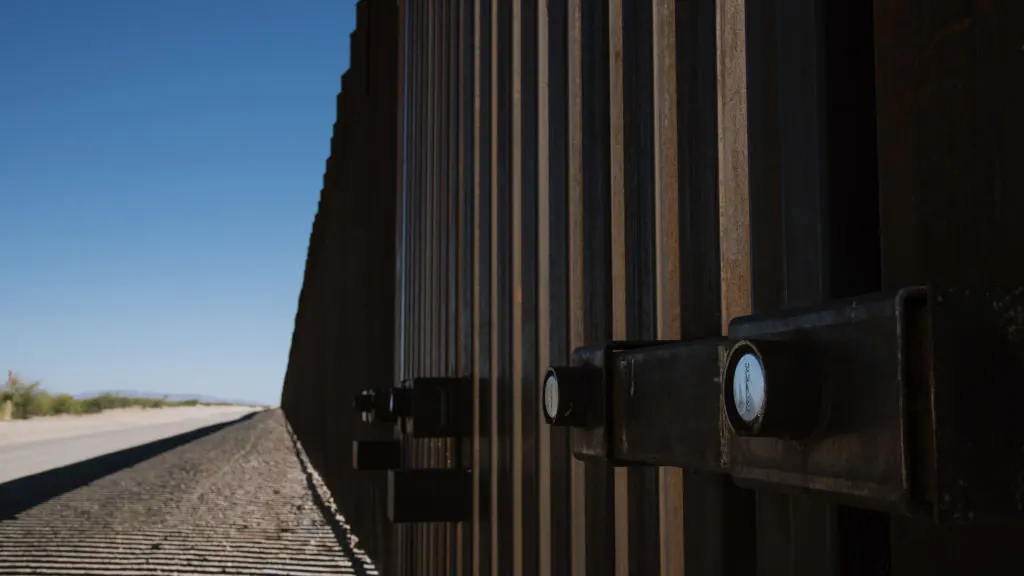In its latest annual hate crimes report, the Council on American-Islamic Relations (CAIR) vilified U.S. Customs and Border Protection (CBP) officials as the nation’s greatest perpetrators of anti-Muslim discrimination. So, when as many as 60 Iranian and Iranian-American travelers were delayed for hours earlier this month at the U.S.-Canada border, CAIR was quick to accuse the federal agency of living up to its purported reputation. Has the U.S. government decided to make life difficult for Iranians living in America, as CAIR contends? Or are the nonprofit’s actions part of an enduring campaign to subvert U.S. border security?
In response to a January 2 air strike which killed Iranian Islamic Revolutionary Guard Corps-Quds Force commander Qassem Soleimani, the Department of Homeland Security (DHS) published a bulletin warning that Hezbollah and other Iranian loyalists could carry out homeland-based plots by targeting “critical infrastructure.” New York Governor Andrew Cuomo deployed the national guard to protect public transportation, while government officials in California, Washington, and Massachusetts ordered increased police patrols or warned citizens to remain extra vigilant.
Meanwhile, the Peace Arch Border Crossing in Blaine, Washington became congested on January 4 after as many as 60 Iranian natives were allegedly selected for additional screening and detained, in some cases, for several hours. The travelers, who were returning from a pop concert in Vancouver, put a strain on CBP resources as customs agents struggled to keep up with the sudden increase in cross-border traffic. However, CAIR officials explicitly alleged that delays and mistreatment were premised solely on national heritage.
Soon after, CAIR’s Washington chapter issued a press release accusing CBP officials of treating Iranians and Iranian-Americans to prolonged interrogations at the U.S.–Canada border. “A source at CBP reported that the [DHS] has issued a national order to CBP to ‘report’ and detain anyone with Iranian heritage entering the country who is deemed potentially suspicious or ‘adversarial,’ regardless of citizenship status,” CAIR wrote.
CBP rejected these allegations. “Social media posts that CBP is detaining Iranian-Americans and refusing their entry into the U.S. because of their country of origin are false. Reports that DHS/CBP has issued a related directive are also false,” said CBP spokesperson Michael Friel.
So far, CAIR has failed to produce any evidence supporting its discrimination claims. Instead, the nonprofit denigrated CBP personnel based on the testimony of frustrated tourists who experienced delays while crossing an international border during a period of heightened geopolitical tension.
What can’t be known about the recent cross-border controversy, because it falls beyond the public purview, is whether there was specific intelligence from the Terrorist Screening Center that indicated a need to conduct a more robust screening operation at the Peace Arch crossing. It is telling that no other enhanced security measures were enforced at other U.S. entry points around the same time.
Even public knowledge of the threats posed by Shi’ite Islamism suggests that it was credible national security risks, and not uninformed profiling, that guided CBP’s actions. The agency must contend with Hezbollah’s elite external operations unit, known as the Islamic Jihad Organization (IJO), whose members have been trained to “maintain ostensibly normal lives” until they are activated to serve the Iranian regime’s interests.
FBI reports indicate that Canada serves as a staging area for future homeland attacks. Ali Kourani, a Hezbollah sleeper agent convicted in 2019 of planning attacks in the U.S., told FBI agents that IJO is “even more active in Canada than they were in the United States.” Kourani’s Iranian handlers discussed the strategic advantages of cultivating familial ties to Canada, so that “it wouldn’t appear suspicious or odd if he were to make travel to Canada with some regularity or frequency.”
Iran is a country that is regularly cited as a state sponsor of terrorism, with a track record of penetrating U.S. borders. For instance, between 1995 and 2000, Lebanese immigrant Mohammed Youssef Hammoud oversaw a vast “criminal enterprise” in Charlotte, North Carolina, which accumulated millions of dollars in capital intended for Hezbollah leaders in Lebanon.
In 2011, Soleimani’s Quds Force was implicated in a clandestine plot to assassinate the Saudi ambassador to the U.S. and bomb the Saudi embassy in Washington D.C. Then there is Alexei Saab, a New Jersey resident charged in September with a nine-count indictment for surveilling targets on behalf of IJO, probing for “soft spots” throughout New York City.
CAIR’s position on screening for terrorists, however, has been to undermine the process wherever possible. Indeed, the organization exerts a great deal of effort challenging the government’s immigration and border security policies.
In September, CAIR proclaimed “complete victory” in a lawsuit that challenged the constitutionality of the terrorist watch list, a security protocol that subjects implicated airline passengers and border transients to additional screening. (Fewer than 0.5% of watch list suspects are U.S. citizens or legal residents.) For more than a year, CAIR filed lawsuits and amicus briefs that stalled Trump administration efforts to implement a travel ban affecting visitors from select high-risk countries
CAIR has even directed Muslim Americans who are detained by customs officials to obstruct the screening process whenever possible, perhaps explaining the delays experienced at the Peace Arch Border Crossing. “Whether you wait an hour or four hours, remain silent until they let you out,” advised CAIR-Florida executive director Hassan Shibly.
National-level law enforcement efforts must be led by consulting relevant intelligence sources. Given the geopolitical context, the enhanced security posture at the U.S.-Canada border can be attributed to due diligence, and not some nefarious desire to pester Iranian-Americans. Yet, CAIR is far too eager to paint American security personnel as aggressors. CBP was merely taking reasonable precautions in the face of escalating hostility from a rogue nation that has spent decades building powerful Islamist infrastructure across North America.
David Firester is a writer for Islamism in Politics, a project of the Middle East Forum. He is the founder and CEO of TRAC Intelligence, LLC, an Adjunct Lecturer at Hunter College, and a former U.S. Army Intelligence Analyst.

.png)
.png)

